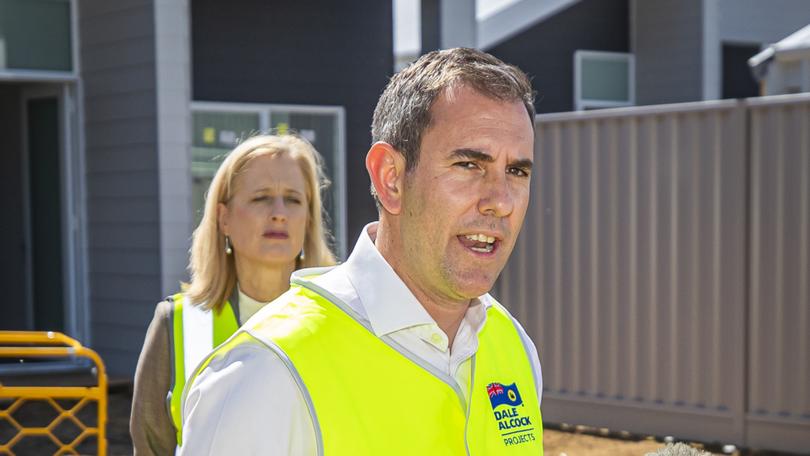Jim Chalmers lines up Beijing visit as iron ore, metallurgical coal slump threatens $4.5bn budget hit

Treasurer Jim Chalmers will hold crucial economic talks in Beijing later this month as China’s property slump threatens to punch a much bigger hole in the Federal Budget than expected.
Treasury is now predicting the faster-than-expected drop in iron ore and metallurgical coal prices could cost the Budget $4.5 billion – up from the $3 billion hit forecast just three weeks ago.
Dr Chalmers will travel to Beijing at the end of the month for talks with his Chinese counterparts, making him the first Treasurer to visit China in seven years.
Sign up to The Nightly's newsletters.
Get the first look at the digital newspaper, curated daily stories and breaking headlines delivered to your inbox.
By continuing you agree to our Terms and Privacy Policy.The Federal Government is worried about the state of the Chinese economy, in particular a real estate slowdown that has sent prices for iron ore – the key steelmaking ingredient – tumbling by roughly 40 per cent since the start of this year.
Prices for metallurgical coal have also fallen about 40 per cent, with demand from India softening as it weathers its monsoon season.
The West understands last month’s Treasury analysts that forecast the $3 billion budget hit did not factor in falling coal prices.
China’s ongoing ban on Australian lobster – the last of Beijing’s major COVID-era trade sanctions – and Canberra’s foreign investment rules loom as other major agenda items for this month’s talks.
Dr Chalmers struck a diplomatic tone when asked if the Federal Government wanted Chinese investment in critical minerals processing.
The Treasurer earlier this year ordered China-linked investors to offload their stake in Northern Minerals to protect Australia’s national interest.
“We want to make sure that our foreign investment regime is non-discriminatory, it’s not about one country or another,” he said.
“Part of the reason I’m reforming the foreign investment regime is because I want to strengthen it in areas like critical minerals, critical infrastructure, critical data, and I want to streamline it for areas where there are fewer concerns. That’s not about one country or another.”
